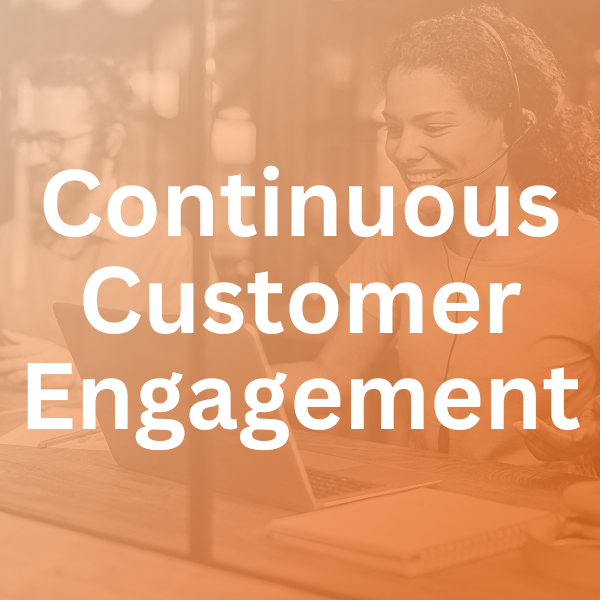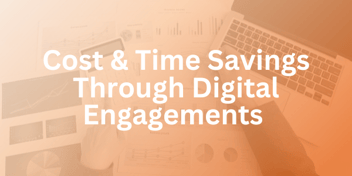
How Digital Engagements Saved This F200 Company $2.9M and A Year’s Worth Of Meetings
The landscape of B2B sales is undergoing a monumental shift towards digital customer and prospect...
The chart below illustrates the tremendous opportunity B2B businesses have to efficiently drive revenue growth for years to come using continuous customer engagement (CCE).
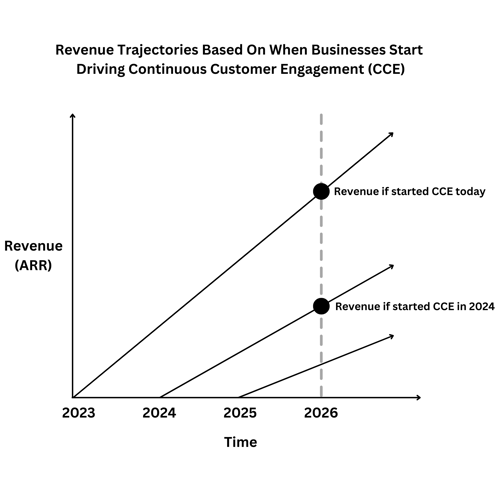
This post will cover what exactly CCE is, why it’s so impactful to revenue generation, and how to facilitate it.
What is CCE?
CCE refers to the ongoing interactions between a business and its customers throughout their entire customer journey – from an early stage prospect to a fully adopted customer.
CCE is made possible through digital channels, facilitating buyer-led interactions and capturing customer engagement asynchronously. The data resulting from that engagement provides insight to customer-facing roles on how to create personalized, contextual, and timely interactions. The result is a highly valuable, frictionless, and consistent customer experience.
Examples of technology that enables continuous customer engagement include digital sales rooms and buyer engagement platform.
CCE: The linchpin of effective RevOps
Creating continuous customer engagement digitally across the customer lifecycle generates the most important aspect of centralized revenue operations: data.
Effective revenue operations relies on the communal sharing of customer data between Marketing, Sales & Sales Development, and Customer Success teams. By leveraging the data collected at each stage of a customer's lifecycle, each role can deliver the most value to the customer when it's their time to engage.
Consider this example: a prospect engages with a digital platform to learn about a companies products. Sales is given access to the engagement data of the prospect, allowing them to know what problems the prospect is looking to solve and which products they're interested in. When the prospect is ready to engage with Sales, Sales knows how to better guide the deal to close. Once closed, customer success can see the engagement data gathered throughout the sales cycle, letting them know right away what problem the customer is looking to solve and accelerating time to value.
The graphic below shows the traditional siloed approach to managing the customer lifecycle. Separate parts of the revenue team (marketing, sales, and customer success) have isolated, sporadic interactions with customers. Those interactions are often using different technology and many times do not collect the engagement data. Handoff processes between teams are often clunky, and not accompanied with relevant information about the customer. This siloed approach creates a customer experience that puts the burden on the customer to keep each team updated on what problems they’re trying to solve and to explain how their business works. This handoff process might make sense internally because that's how the operations are set up, but it creates a disjointed experience for the customer that does not reflect positively on the business.

Facilitating continuous customer engagement, however, allows data to be shared between and accessed by each customer-facing role, enabling businesses to move from intuition-based decision making to data-driven decision making.
Continuous Customer Engagement: A win-win for you and your customers
Driving continuous customer engagement enables businesses to deliver a highly valuable experience to customers, from creating a great first impression and a helpful, modern buying experience to creating a relevant onboarding process that provides a faster time to value.
In addition, it helps sales and marketing teams efficiently generate new business by understanding exactly what matters to prospects early on, allowing your sales team to tailor their interactions with prospects that solves prospects’ problems.
CCE also allows Customer Success to understand how the needs of existing customers are changing, what is top of mind, and how to help them derive the most value from your products. Being an informed partner allows you to foster a lasting relationship that generates loyalty and evangelism.
The result of efficiently winning new business and keeping existing customers? Increased revenue for your business.
“Win the customer, not just the deal”
How to get started with continuous customer engagement
By 2026, 65% of B2B businesses are going to be leveraging CCE. However, businesses that want to grow immediately and sustain a steep growth trajectory are taking action now because of the tremendous opportunity shown in the graphic at the top of this post.
A great way to start is to look for solutions that drive customer engagement and span the entire customer lifecycle. For example. a solution that provides each of your customers a centralized, private portal where they can digitally engage with your product content, demos, and team is a proven approach.
If you want to learn how Omedym can help you compound continuous customer engagement, watch this ~3 min video.
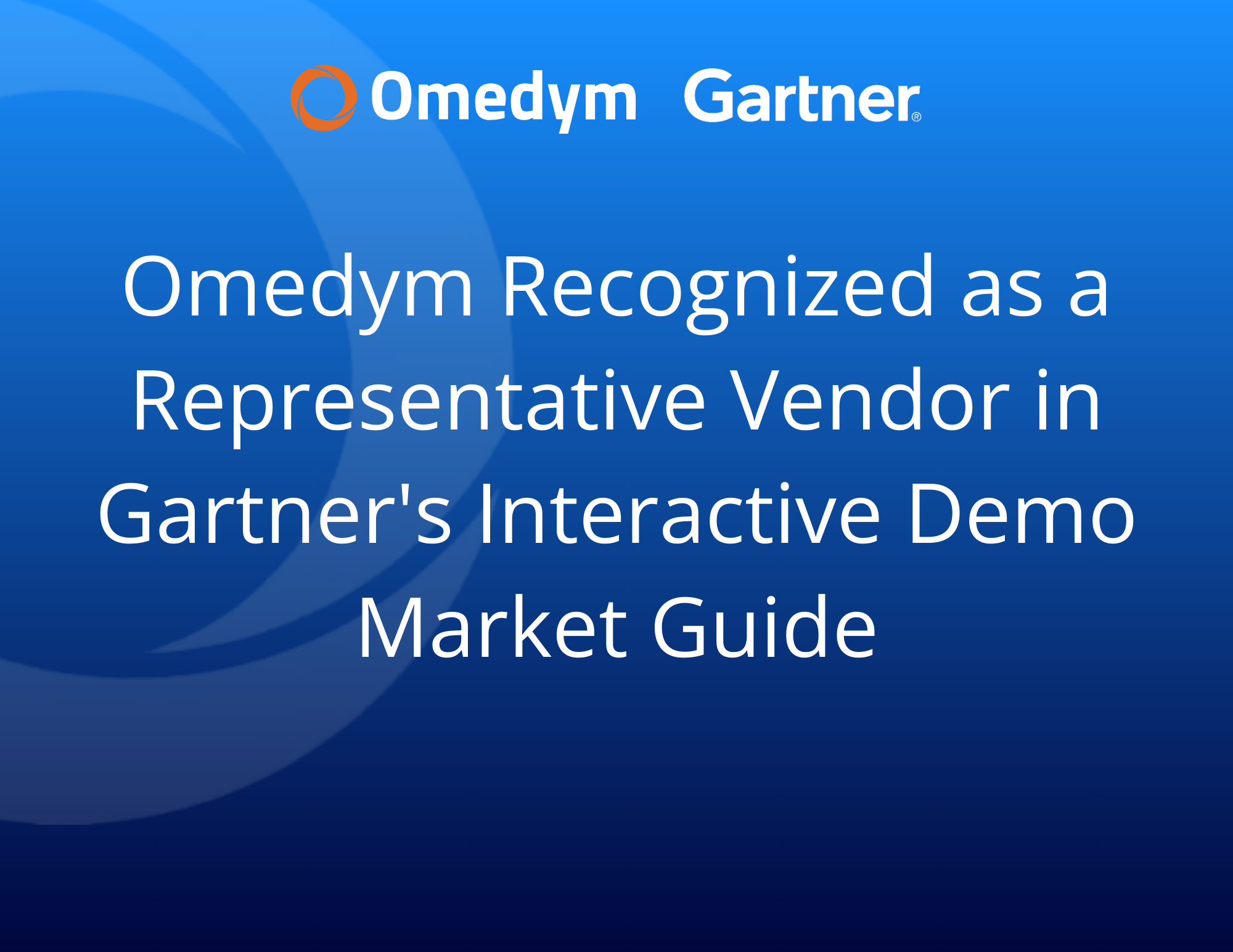

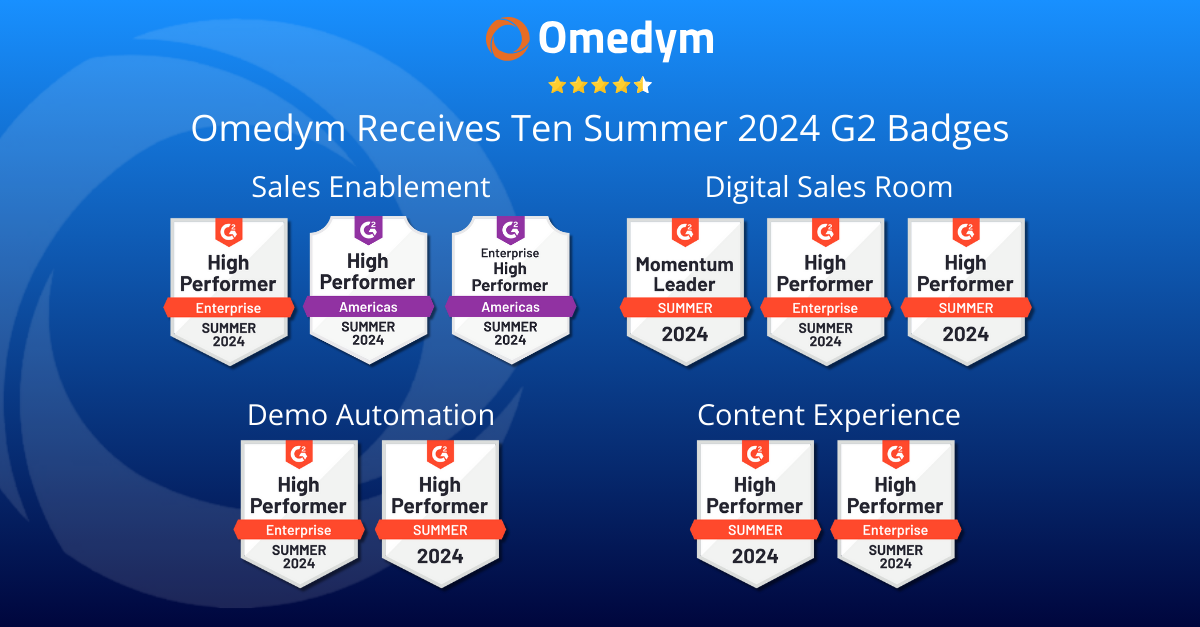

The landscape of B2B sales is undergoing a monumental shift towards digital customer and prospect...
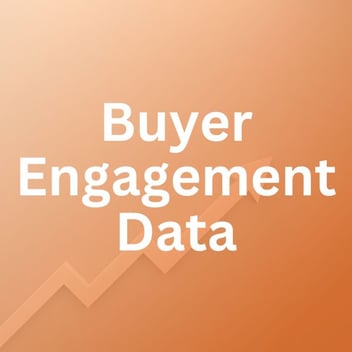
It’s no secret that B2B selling has slowed down and become more challenging. We’ve seen numerous...

Imagine that you’ve been tasked with finding a software solution for your business. What would your...
